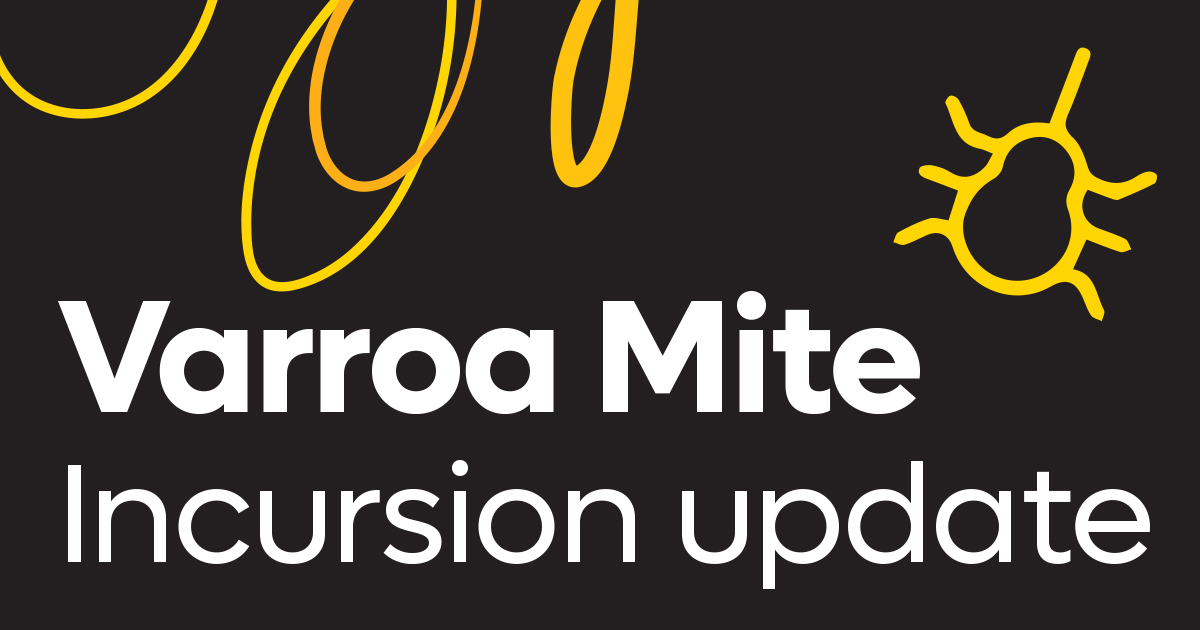AHBIC Varroa Update – Day 155
25 November 2022New Detection near Cessnock There has been a new detection of Varroa mites in hives in the purple zone west of Newcastle. This is the first detection outside of the […]

New Detection near Cessnock
There has been a new detection of Varroa mites in hives in the purple zone west of Newcastle. This is the first detection outside of the existing red zones since early August. This new detection will create a new red zone and is now live on the DPI website: Varroa mite emergency response (nsw.gov.au). The emergency order has been updated (EO 28) to reflect the new zone and is also found on the DPI website.
The infested hives were detected during purple zone surveillance, which has been ramped up as the red zone euthanasia program nears completion. A total of 5 hives located at Quorrobolong, south of Cessnock, in a load of 41 hives showed low levels of mites (1-12 mites per sticky mat). Miticide strips and sticky mats were sent to the DPI lab and the Varroa mite diagnosis was confirmed under microscope.
Tracing has shown strong links of previous hive and equipment movements from an existing IP. The hives at this new IP have been euthanised and 3 other loads belonging to the same beekeeper are being assessed. It is unfortunate to report that the new red zone will encompass a further 650 hives.
Whilst not good news, it is not unexpected that a detection in the purple zone will occur as surveillance intensifies throughout that area. This detection reinforces the need for the purple zone and the on-going tight restrictions.
Compliance and adhering to the restrictions
This new detection is a timely reminder to all beekeepers to continue to do the right thing and follow the rules. The restrictions are in place to prevent any spread of undetected mites and once detected to swiftly conduct tracing of hive movements.
Continual surveillance
Alcohol washing of hives is a mandatory requirement for ALL NSW beekeepers. NSW apiarists now must do at least one alcohol wash within every 16 week period, regardless of if they move or not. Beekeepers must report the results of the alcohol washes through the online form when completed.
The ratio of washing hives has not changed. The following applies to an operation:-
- Less than 64 hives owned – all hives must be washed
- 64 hives up to 640 hives owned – washing of 64 hives
- 640 hives or more owned – 10% of hives washed
Hive movements require a declaration
Commercial beekeepers who want to move hives must submit a movement declaration form through the existing online system. Beekeepers must have completed at least one alcohol wash in accordance with the washing requirements above before moving. The movement declaration form also requires beekeepers to have completed the Tocal online training course.
